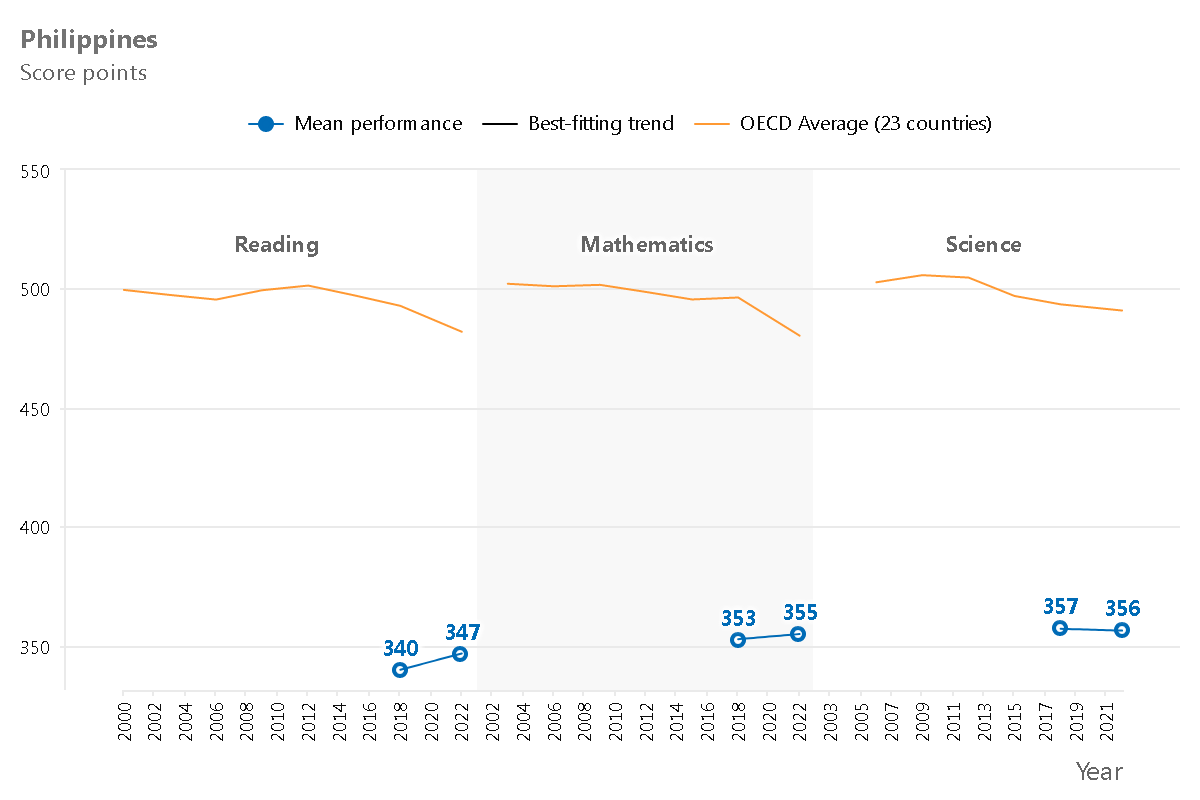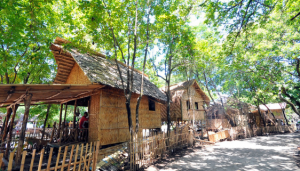FOR THE second time, Filipino learners still lagged and produced low-level proficiency in mathematics, reading, and science, the latest Programme for International Student Assessment (PISA) 2022 revealed.
Despite single-digit improvements, the average 2022 results were about the same as in 2018 and the country still performed below the Organization for Economic Co-operation and Development (OECD) average set in all three subject domains.
In mathematics, the country scored two points from 353 in PISA 2018 to 355 points in 2022, ranking 76th out of 81 countries. The OECD average in the subject is 472 points.
The Philippines’ average in reading improved by only seven points from 340 in 2018 to 347 points in 2022. The global average for this subject is 476 points.
In science, the country’s average is 356, dropping one point from 355 in 2018. The OECD average in science is at Level 3 (485 points).
The results show that 16% of the Filipino learners attained at least Level 2 proficiency in mathematics, 24% of the learners attained the minimum proficiency in reading and 23% in science.
However, it is still similar to 2018 where more than 75% of the 15-year-old learners are below the minimum level of proficiency in three subject domains.
A total of 7,193 students in 188 schools completed the assessment representing 1,782,900 15-year-old students (83% of the total population of the age group).
The learners took two hour-long tests for each subject domain, where they were given different test questions with combinations of the subjects in the form of multiple-choice questions and questions that required learners to construct their own responses.
“The PISA results lay bare an uncomfortable truth,” Vice President and Department of Education Secretary Sara Z. Duterte said during the PISA 2022 National Result Report forum on Dec. 6.
She stressed the result was a “call to action, a call to our collective responsibility as a nation.”
The DepEd secretary said despite the Matatag Curriculum, national reading, math and science programs, initiated catch-up Fridays, and expanding teacher career progression, there is still a need for support from all stakeholders.
“We need every stakeholder to join us in this journey moving forward. We may approach the solution differently, but we all agree on the destination. Everyone’s efforts are counted and everyone is accountable for our children’s future.”
Duterte recognized the pivotal role of teachers particularly despite school closures during the pandemic and urged the education leaders to continue supporting the teachers so they may be able to continue supporting the learners.
The vice president also highlighted the role of communities in creating a “safe, inclusive, supportive, and connected school climate”, which is deemed necessary to protect children against exploitation due to socioeconomic conditions.
PISA assesses 15-year-olds’ knowledge, skills, and competencies in reading, mathematics, and science from 81 countries since 2000 and the Philippines first joined in 2018.




